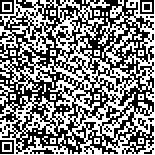| 摘要: |
| 2014年“1·11火灾”使香格里拉独
克宗古城核心区受灾严重,其中8栋文物保
护建筑大面积受损,夏举岗达老宅是其中一
栋被毁坏的传统藏式民居。在甄别了其原
真性以后,复原工作旨在原址恢复其2 0 0 5
年整体格局与风貌,然而在政府与户主利益
的博弈中,重建未能达到如期效果。通过对
夏举岗达老宅“灾损评估—重建设计—建
造过程—投入使用”的全程参与记录,分
析理想与现实之间的差距,总结文物在恢
复重建中的要点与方法,并反思其成果的不
足,提出适宜的文物重建之法必须采用科
学的修复方法动态地、主动地加以保护,并
激励民众的集体荣誉感,采取介入的最小化
原则与适当介入原则相结合,并改变重建模
式,由居民主导转为集权专业团队主导。 |
| 关键词: 独克宗 藏式 文物灾后重建 原真性 |
| DOI:10.13791/j.cnki.hsfwest.20170505 |
| 分类号: |
| 基金项目:国家自然科学基金资助项目(51168018) |
|
| Rethinking the Authenticity of Restoration for Heritage Building—Taking the Post-Disaster Restoration of Old House Xiajugangda in Dukezong Ancient Town As an Example |
|
LI Tianyi,HU Kangyu,ZHAI Hui
|
| Abstract: |
| The “1·11 fire” in 2014 has devastated the core area of Dukezong ancient town in
Shangri-La, and eight heritage buildings were badly destroyed, among which Xiajugangda,
the traditional Tibetan buildings was devastated in the fire. After identifying its authenticity,
restoration was aimed at recovering its overall layout and style in 2005 at the original site,
however, the restoration failed to achieve the expected result during the gambling between
the government and the owner. Through recording the process of “damage assessment—
restoration design—construction process—reuse”, the paper analyses the differences between
the ideal and present situation, and summarizes the key points and methods in restoration
work of heritage buildings and introspects its shortages, then puts forward the ideal restoration
methods for heritage buildings. We must protect its authenticity by a scientific restoration
method dynamically and actively, motivate the collective sense of honor, adopt minimized
intervention and proper intervention concept, and then change the dominant restoration pattern
from residents to centralized professional team. |
| Key words: Dukezong Tibetan Style Post-disaster Reconstruction for Heritage Building Authenticity |


